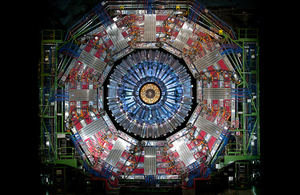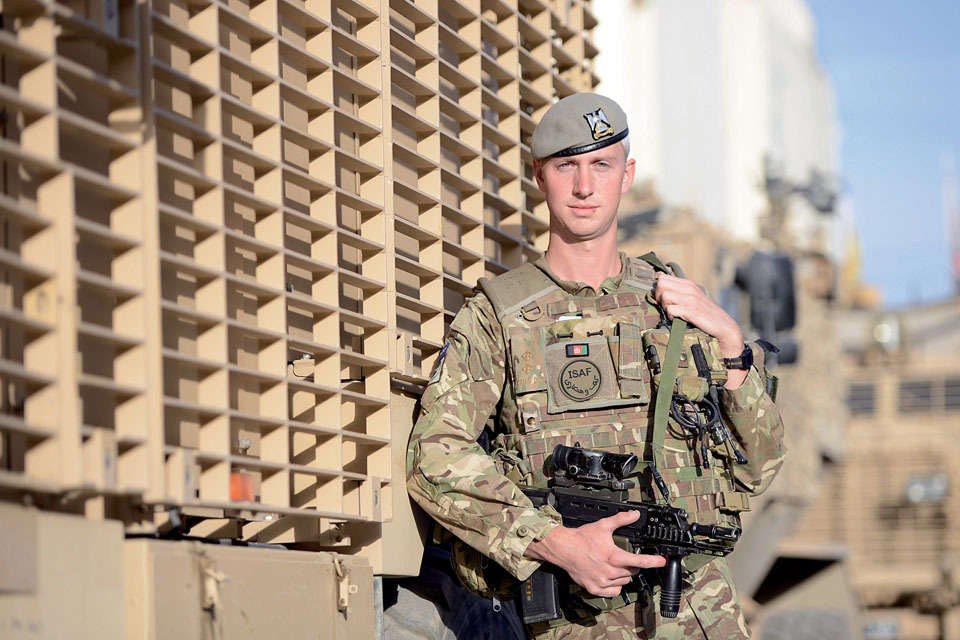From Hadron to Herrick
A former CERN particle physicist is serving in Afghanistan as a force protection troop leader in the British Army.

The Compact Muon Spectrometer (CMS) at the Large Hadron Collider; James Jackson was involved in this experiment while at CERN [Picture: Copyright CERN]
Who would have ever guessed that the legacy left behind in Afghanistan by the British Army may well include top-notch science education for the students of Kabul? If it does, it might be down to Lieutenant James Jackson of the Royal Scots Dragoon Guards, who is serving on Herrick 19 as a force protection troop leader, defending the Afghan media operations cell and any journalists that visit the capital.
Lieutenant Jackson is a former particle physicist with CERN, the European Organisation for Nuclear Research; one of the world’s largest and most respected centres for scientific research.
CERN operates the Large Hadron Collider, the world’s most powerful particle accelerator, considered one of the greatest engineering feats of all time, and James Jackson’s name appears on the Nobel prize-winning paper recording the historic discovery of the Higgs boson particle; the so-called ‘maker of mass’.
In 2012, the scientist swapped careers, inspired by his uncle and one-time commander of 1st Battalion The Royal Green Jackets, Brigadier Jolyon Jackson.

Lieutenant James Jackson at Camp Souter in Kabul [Picture: Sergeant Dan Bardsley, Crown copyright]
While in Kabul, Lieutenant Jackson has been finding out more about the science courses available to Afghan students, with a view to passing on some of his knowledge to colleges there. He said:
Their rough syllabus looks decent for undergraduates. I don’t know to what level the topics are taught, so I’ll be finding out more during my time here.
Lieutenant Jackson joined the Army aged 27 and completed a year at the Royal Military Academy Sandhurst, where he was awarded the Queen’s Medal; given to the cadet who gets the highest mark in everything assessed.
Obviously, he was never going to struggle with the academic element:
I’m one of those people who finds maths and physics very easy,” said Lieutenant Jackson. “In my final year at Bristol University I completed a project in particle physics, and from that I went on to study for a PhD in the subject.
Lieutenant Jackson appears to have taken the overall transition from the scientific world to the military comfortably in his stride:
Both fields actually require a very similar mindset, so there is significant overlap,” he said.
On the whole, those in the armed forces and research science are dynamic, adaptable, driven, not scared of uncertainty, and keen to solve problems. This is one of the reasons why the move from science to soldiering was not as vast as you might expect.
The officer’s efforts to work with local universities in Kabul shows he will never be free of his passion for science, though, and he still closely follows the work at CERN:
I can only hope that the Higgs is just the tip of the iceberg and that when more data is analysed my friends and ex-colleagues can tease out more of the universe’s secrets,” he added. “I’ll continue to watch with interest.
This interview features in the January 2014 issue of Soldier – the magazine of the British Army.
Updates to this page
-
Added photograph with kind permission from CERN
-
First published.